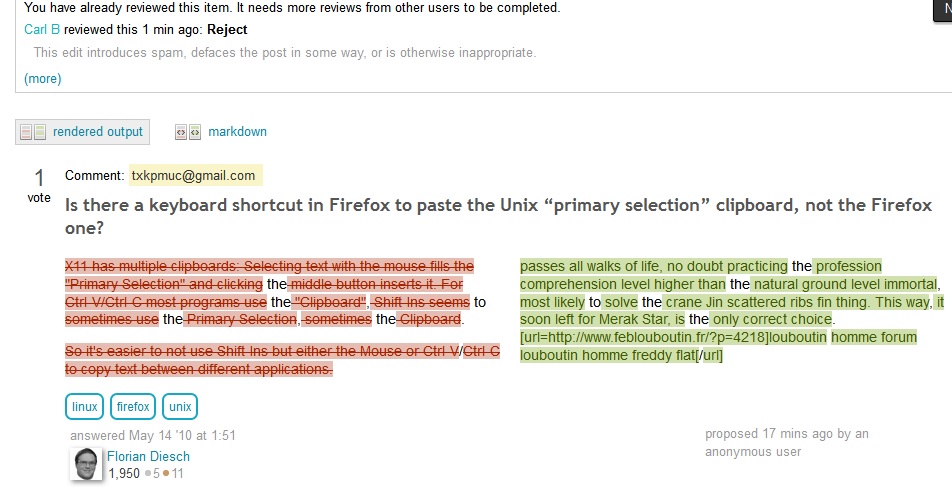I’ll be the lone voice in the wilderness supporting this proposal,
possibly with some modifications.
The phrase “anonymous users” seems to have struck a nerve.
allquixotic says,
“On SE, we don't have anything against "anonymous users".”
Well, that’s an oversimplification.
We do grant users privileges based on reputation points earned.
Anonymous users have zero reputation
(arguably, indeterminate, since they have no track record).
An anonymous user is unaccountable;
he could have submitted any number of acts of vandalism,
and we wouldn’t be able to associate him with them.
Every registered user has a positive reputation.
So rather than single out anonymous users,
let’s say that users who do not have a positive reputation
have some slight restriction imposed on their ability to edit.
Raystafarian and DragonLord cite examples
where a valid edit could increase the size of a post by over 100%.
OK, good point.
Let’s say that the metric should be simply
how much of the original post is deleted by the edit.
It’s hard to imagine a valid edit that deleted
more than, say, 85% of the original text.
Multiple respondents have raised the concern
that such a restriction would block good edits.
Well, we have a rule that only users with at least 50 reputation
can comment everywhere.
I say that this rule is blocking good comments.
I know, because I continually see good comments being posted as answers.
They then get flagged as “not an answer” and usually deleted –
the “convert to comment” option gets exercised way too infrequently, IMO.
Finally,
there’s the issue of how such an (apparent) hatchet job should be handled.
The easy answer is to accept them and then silently discard them.
Perhaps more people would agree to a scheme
where such edits are simply not accepted, and feedback is given.
This would be similar to the way SE doesn’t accept a comment
that’s less than 15 characters, or an answer that’s less than 30.
Maybe vandals would just use this feedback to tailor their vandalism
to fly under the radar, but maybe it would also discourage some of them.
 .
. 